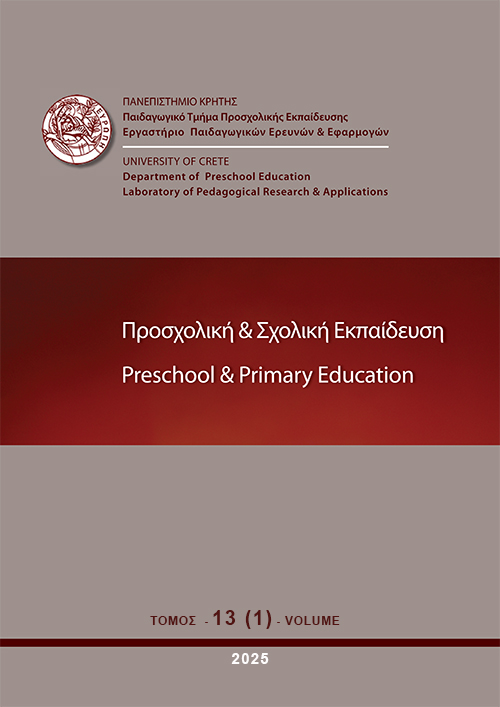The impact of epistemic beliefs on educational beliefs and instructional scenario choices of preservice teachers: from theory to educational practice

Abstract
Previous studies have demonstrated that long before entering university, preservice teachers (PT) develop beliefs about knowledge, learning and teaching based on their school experiences as learners These beliefs in turn influence their roles as educators and classroom managers. Research indicates that these beliefs do not form a coherent system but rather constitute a complex, interrelated, and multidimensional belief system, where conflicting beliefs may coexist and may work as a barrier to learning new information about learning theories and teaching practices. This study aimed to investigate a) PTs’ epistemic beliefs about the nature of knowledge and knowing, b) the impact of these beliefs on PTs’ educational beliefs about teaching and students’ cognitive engagement, and c) their influence on teaching scenario choices based on the ICAP (Interactive, Constructive Active, Passive) active learning theory. The study involved 231 preservice teachers enrolled in Early Childhood Education Programs at two Greek university departments. Data were collected through two Likert-scale questionnaires measuring a) PTs’ epistemic beliefs, and b) PTs’ educational beliefs regarding teaching practices and cognitive engagement. Additionally, participants completed a task requiring them to select teaching scenarios based on the ICAP model of students’ cognitive engagement. The results revealed a lack of coherence in PTs’ epistemic and educational belief systems. Participants simultaneously held beliefs that were both consistent and inconsistent with a constructivist epistemology and a student-centred approach to learning and teaching. Furthermore, a significant correlation was found between PTs’ epistemic and educational beliefs; more sophisticated epistemic beliefs were related to a preference for student-centred teaching models. Epistemic beliefs also influenced teaching scenario choices; participants with less sophisticated epistemic beliefs tended to select a traditional-teacher-centred model emphasising passive student cognitive engagement, while those with more sophisticated epistemic beliefs favoured a constructivist-student-centred model that promoted interactive student cognitive engagement. Regression analyses confirmed that sophisticated epistemic beliefs were strong predictors of constructivist educational beliefs and preferences for constructive and interactive teaching methods. These findings can be interpreted within the Framework theory approach of conceptual change, which emphasises the complexity of shifting from teacher-centred to student-centred approaches. PTs’ teacher-centred beliefs, shaped by their past experiences as students, can hinder their understanding of contemporary learning theories and theories’ application in educational practice. Shifting from a teacher-centred to a student-centred approach is a complex process that requires substantial epistemic changes. PTs must recognise that knowledge is individually constructed, evolves over time, is context-dependent, and cannot simply be transmitted by authority. This perspective is particularly critical, given that PTs are both learners and future educators. Their epistemic beliefs, shaped by their university experiences, will influence how they teach and assess students in the future. Changes in epistemic beliefs are not straightforward replacements of “incorrect” ideas with scientific concepts, but involve gradual changes often leading to contradictions within the belief system; initial and sophisticated beliefs coexist either in the form of synthetic models or misconceptions. These complexities highlight the importance of designing undergraduate programs that foster sophisticated epistemic beliefs and facilitate the conceptual change necessary for effective teaching.
Article Details
- How to Cite
-
Kyriakopoulou, N., & Skopeliti, I. (2025). The impact of epistemic beliefs on educational beliefs and instructional scenario choices of preservice teachers: from theory to educational practice. Preschool and Primary Education, 13(1), 50–82. https://doi.org/10.12681/ppej.39414
- Section
- Articles

This work is licensed under a Creative Commons Attribution-NonCommercial-ShareAlike 4.0 International License.
Authors who publish with this journal agree to the following terms:
- Authors retain copyright and grant the journal right of first publication with the work simultaneously licensed under a Creative Commons Attribution Non-Commercial License that allows others to share the work with an acknowledgement of the work's authorship and initial publication in this journal.
- Authors are able to enter into separate, additional contractual arrangements for the non-exclusive distribution of the journal's published version of the work (e.g. post it to an institutional repository or publish it in a book), with an acknowledgement of its initial publication in this journal.
- Authors are permitted and encouraged to post their work online (preferably in institutional repositories or on their website) prior to and during the submission process, as it can lead to productive exchanges, as well as earlier and greater citation of published work (See The Effect of Open Access).


